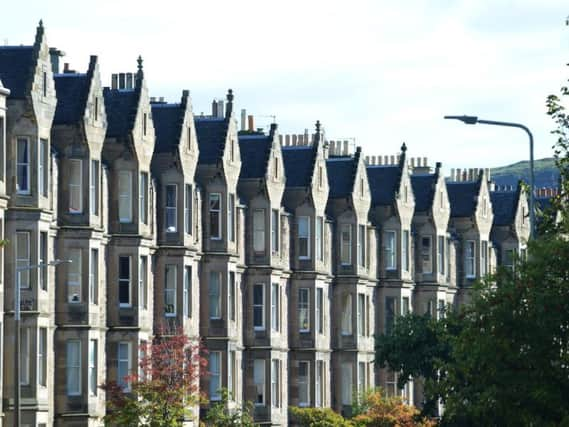COMMENT: David Alexander looks at Edinburgh's '˜in-betweeners'


Among their number was Dundonian actor Alan Cumming who has made a name for himself in the US. Mr Cumming was sufficiently fervent in his belief in independence that he bought a flat in the Polwarth district of Edinburgh in the hope of becoming eligible to vote in the referendum. Unfortunately for him, his residency qualifications were not sufficiently lengthy enough to qualify.
Still, while the result did not go the way Mr Cumming would have wanted, his foray into property did not harm his bank balance, and he recently revealed that he made a £64,000 profit on the sale of the flat, bought just five years ago for £82,000.
Advertisement
Hide AdAdvertisement
Hide AdI am in two minds about this outcome. On the one hand, as someone with a professional vested interest in Edinburgh property, I should be echoing Mr Cumming’s good fortune as an example of how this market provides a vastly superior return to any other asset class for anyone without specialist financial investment skills.
On the other hand, to have any long-term future, the market needs to be sustainable and I worry at the way price uplifts of this magnitude make it even more difficult for local first-time buyers to get a foot on the property ladder.
Either way, what the sale does represent is the resilience of a meandering circle of residential districts in Edinburgh that could accurately be described as “in-betweeners” – neither “city centre” nor “suburban”.
Using Polwarth as a starting point and moving east, it includes Marchmont and the area around Dalkeith Road before heading south to take in Meadowbank and Easter Road. Then it moves west to Pilrig and Canonmills and Stockbridge/Comely Bank before taking a southerly direction to Roseburn, then Gorgie.
These districts are not all clones of one another; for example Gorgie and Easter Road are blue collar, Stockbridge/Comely Bank is white collar, while Marchmont is popular with academics. However, they share one similar characteristic – substantial capital growth over many decades.
Underpinning the popularity of these areas is the old property adage of “location, location, location”. All are well-served by Edinburgh’s expansive and intense network of bus services and are within manageable walking distance of employment in the central core. Also, most properties are no more than a few minutes’ walk of a pub, restaurant, fast-food joint or late-night convenience store.
The one major inconvenience for some is on-street parking. However, a relatively-large number of high-earning residents do not own a car, on the basis that they simply do not feel the need for one.
If I was buying for myself, the age of the buildings might be of enough concern to pay for some kind of structural survey rather than just rely on the standard home report. But for most people up against keen competition from other potential buyers, just securing a property seems to take priority.
Advertisement
Hide AdAdvertisement
Hide AdThe uplift on the flat sold by Mr Cumming will not have been just down to demand from owner-occupiers; prices in the “in-betweener” districts referred to have been boosted by one of the unintended consequences of LBTT (Land and Buildings Transaction Tax).
With the emphasis on “soaking the rich”, LBTT on a £1 million flat in the New Town works out at more than £66,000 and rental investors have sussed out that the tax on four £250,000 flats in Polwarth will set them back £8,400. Do the maths.
What investors also wish for is certainty and continuity and they will probably infer that the decision by independence-supporting Mr Cumming to sell his Edinburgh apartment means “Indyref 2” is unlikely to be back on the political agenda any time soon.
David Alexander is managing director of DJ Alexander